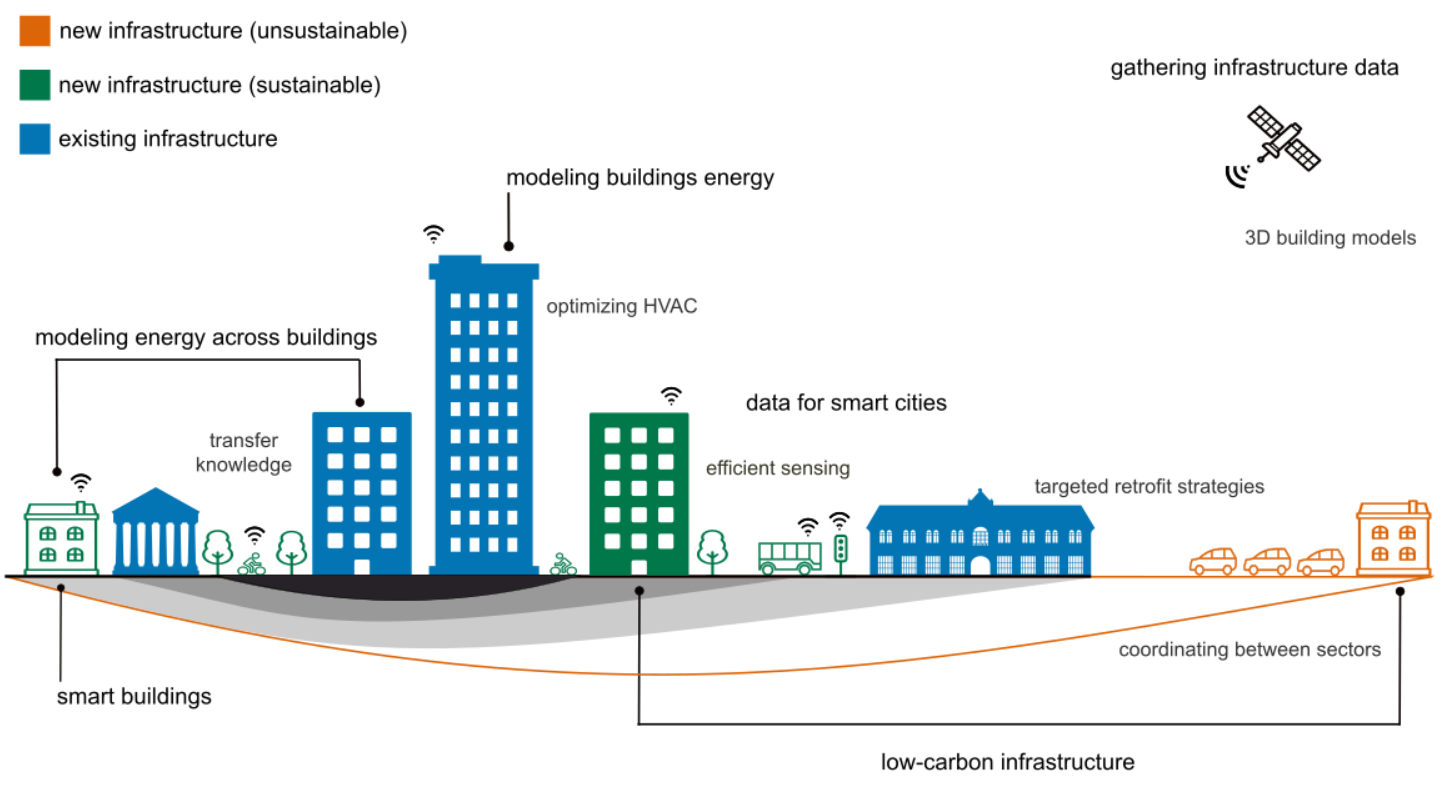Tackling climate change with machine learning
Rolnick, D., Donti, P. L., Kaack, L. H., Kochanski, K., Lacoste, A., Sankaran, K., Ross AS, Milojevic-Dupont, N., Jaques, N., Waldman-Brown, A. Luccioni, A., Maharaj, T., Sherwin, E. D., Mukkavilli, S. K., Kording, K. P., Gomes, C., Ng, A. Y., Hassabis, D., Platt, J. C., Creutzig, F., Chayes. F. & Bengio, Y. (2019). arXiv preprint arXiv:1906.05433.

paper (open access)
Climate change is one of the greatest challenges facing humanity, and many machine learning researchers and practioneers have been wondering how they can help. Here, with a large group of researchers, which then became Climate Change AI, we described how machine learning can be a powerful tool in reducing greenhouse gas emissions and helping society adapt to a changing climate.
From smart grids to disaster management, we identified high impact problems where existing gaps can be filled by machine learning, in collaboration with other fields. Our recommendations encompass exciting research questions as well as promising business opportunities. We called on the machine learning community to join the global effort against climate change.
We wrote the section on ‘Buildings and Cities’ with Lynn Kaack. This section highlights current machine learning approaches to analyze and optimize buildings energy use, and to develop urban planning tools for sustainable cities.
With Tegan Maharaj, we wrote the ‘Tools for Collection Decision’ section. There, we discussed how ML can help research on social dynamics relevant to climate change, and how ML may support policy design, including for (carbon) markets or other regulations.